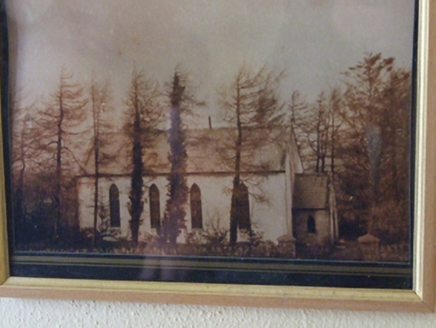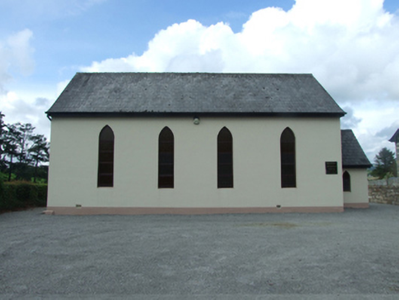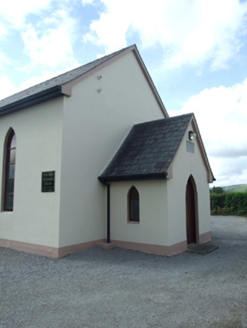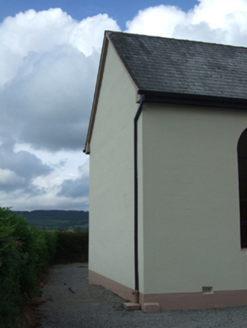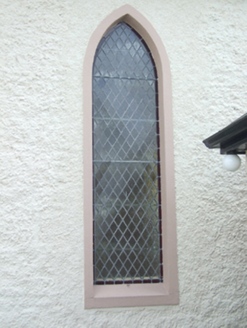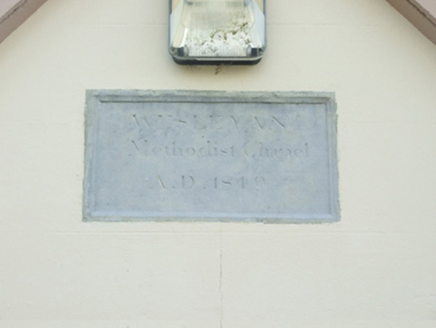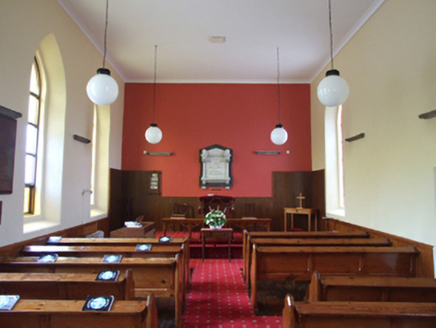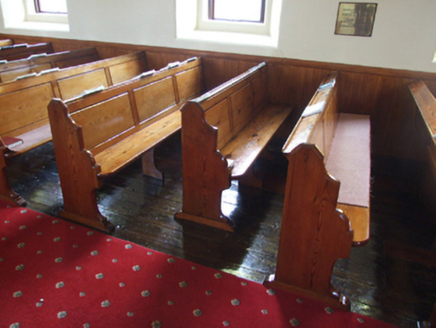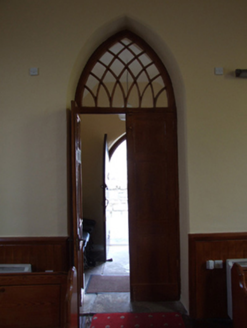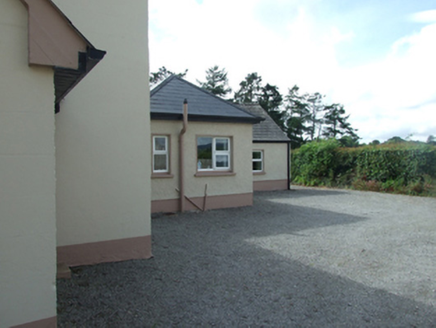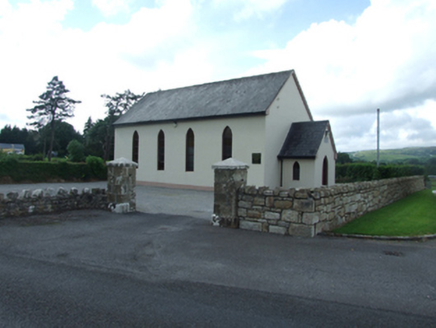Survey Data
Reg No
40400206
Rating
Regional
Categories of Special Interest
Architectural, Social
Previous Name
Blacklion Wesleyan Methodist Chapel
Original Use
Church/chapel
In Use As
Church/chapel
Date
1845 - 1850
Coordinates
207377, 337933
Date Recorded
18/07/2012
Date Updated
--/--/--
Description
Freestanding Gothic Revival style Methodist church, built 1849, with four-bay side elevation to nave, single-storey gabled entrance porch to east gable, single-storey block added to rear, with recent extension. Pitched artificial slate roof with concrete eaves and barges and replacement uPVC rainwater goods. Ruled-and-lined rendered walls to front (south) elevation and gables, roughcast rendered walls to rear (north) and extensions, with smooth rendered plinth course. Stone plaque to porch gable apex inscribed "Wesleyan Methodist Chapel, AD 1849". Pointed arch window openings to front and rear elevations, with rendered surrounds to rear, recent timber multiple paned windows to front, and leaded stained glass windows to rear. Pointed arch entrance door to east of porch with recent tongue-and-grooved timber door and single sandstone step. Timber wainscot and historic pews to interior. Raised podium to west end having central wall memorial of carved stone. Cut-sandstone piers in rubble stone boundary wall with crenellated copings.
Appraisal
A modest church of understated simplicity which retains some interesting architectural details such as the leaded windows and tooled stone plaque above the entrance. The plaque refers to John Wesley, 1703 – 1791, the founder of the Methodist movement, who is said to have visited County Cavan in the eighteenth century. A historic photograph in the entrance porch shows the church surrounded by trees and with a central flue, indicating that a stove formerly stood in the widening of the centre aisle. Built on the estate of Francis Charles Hassard, the church remains a place of worship for the local Methodist community and bears witness to the long history of non-conformist Protestantism in the county.
